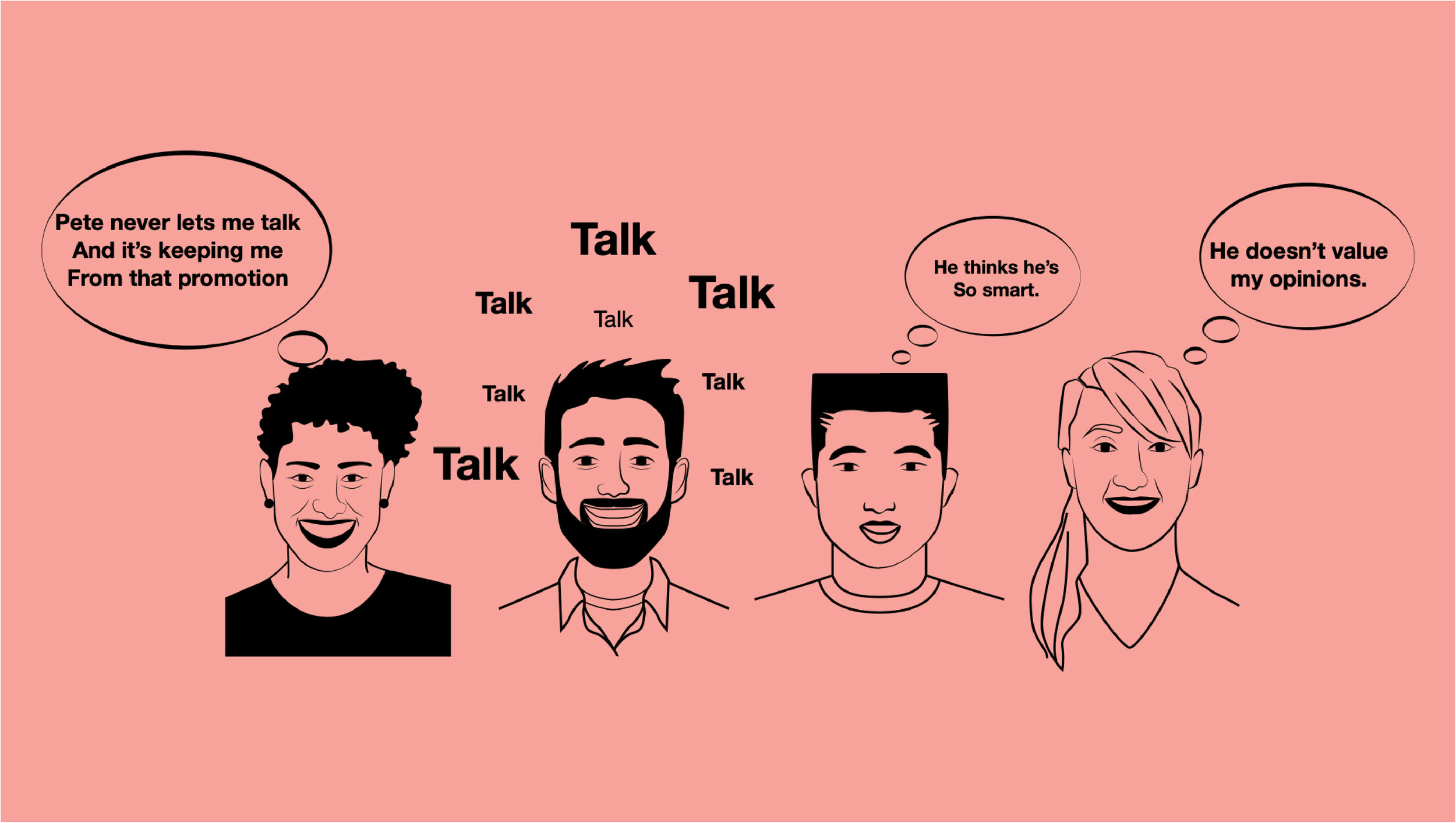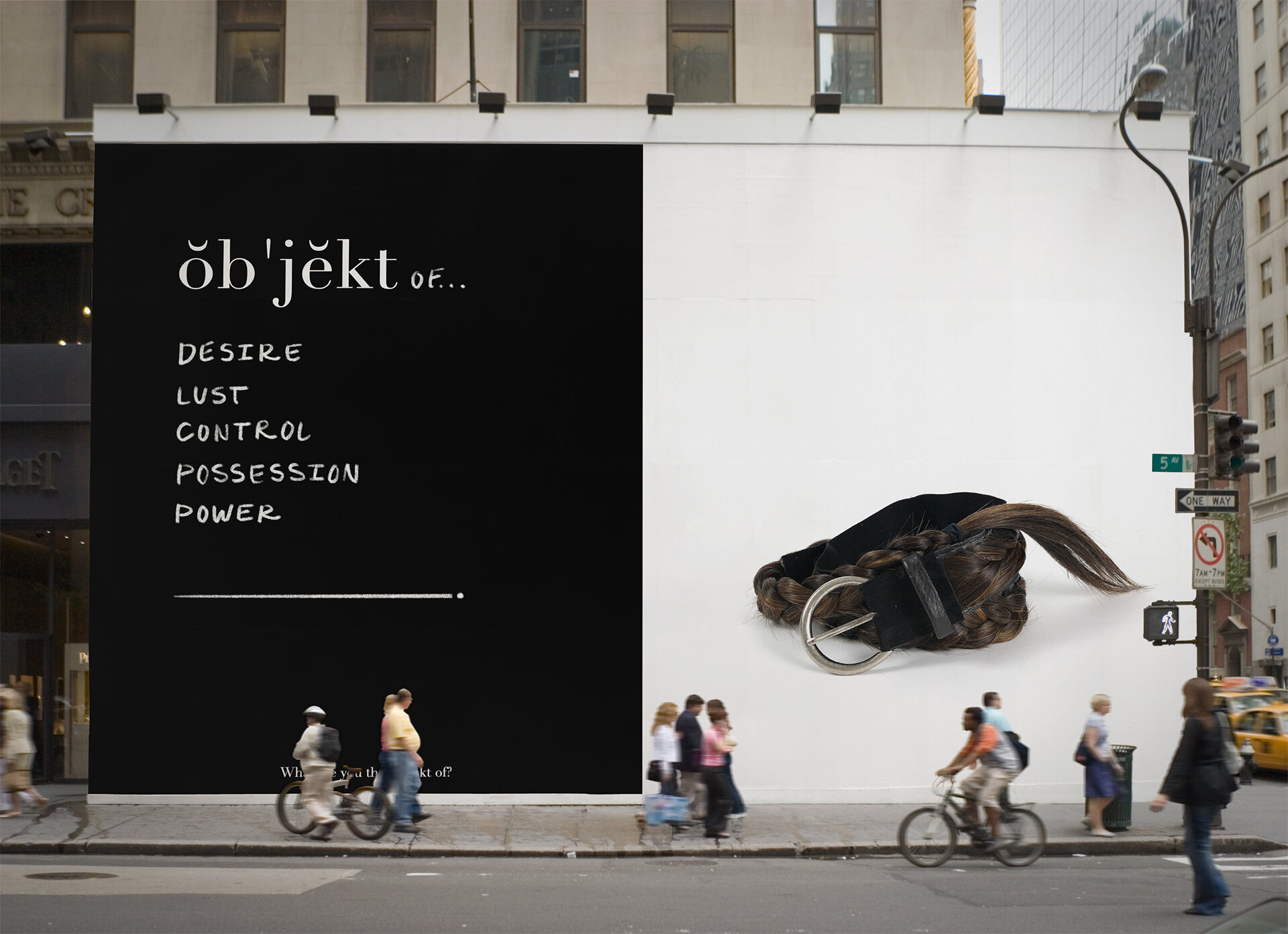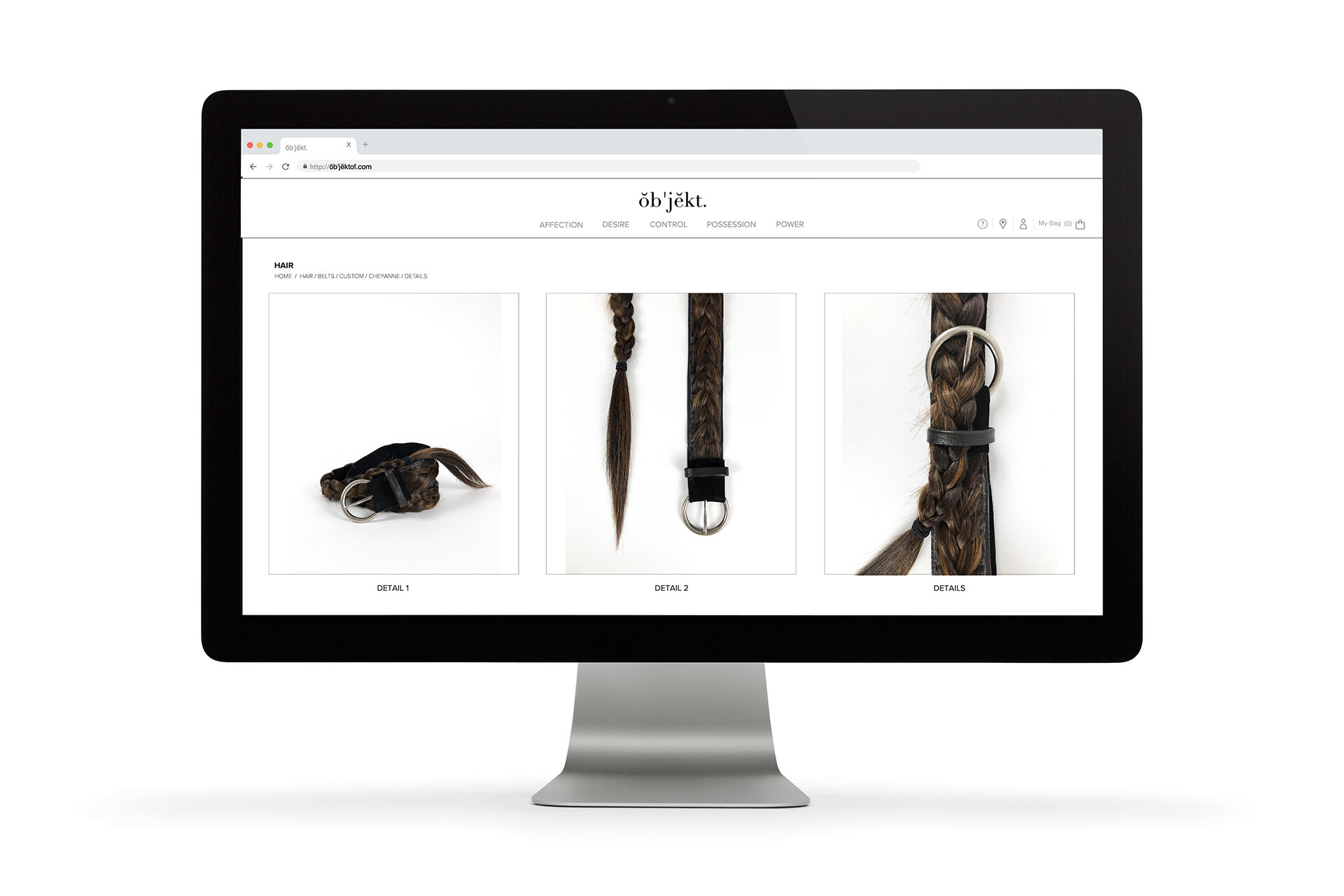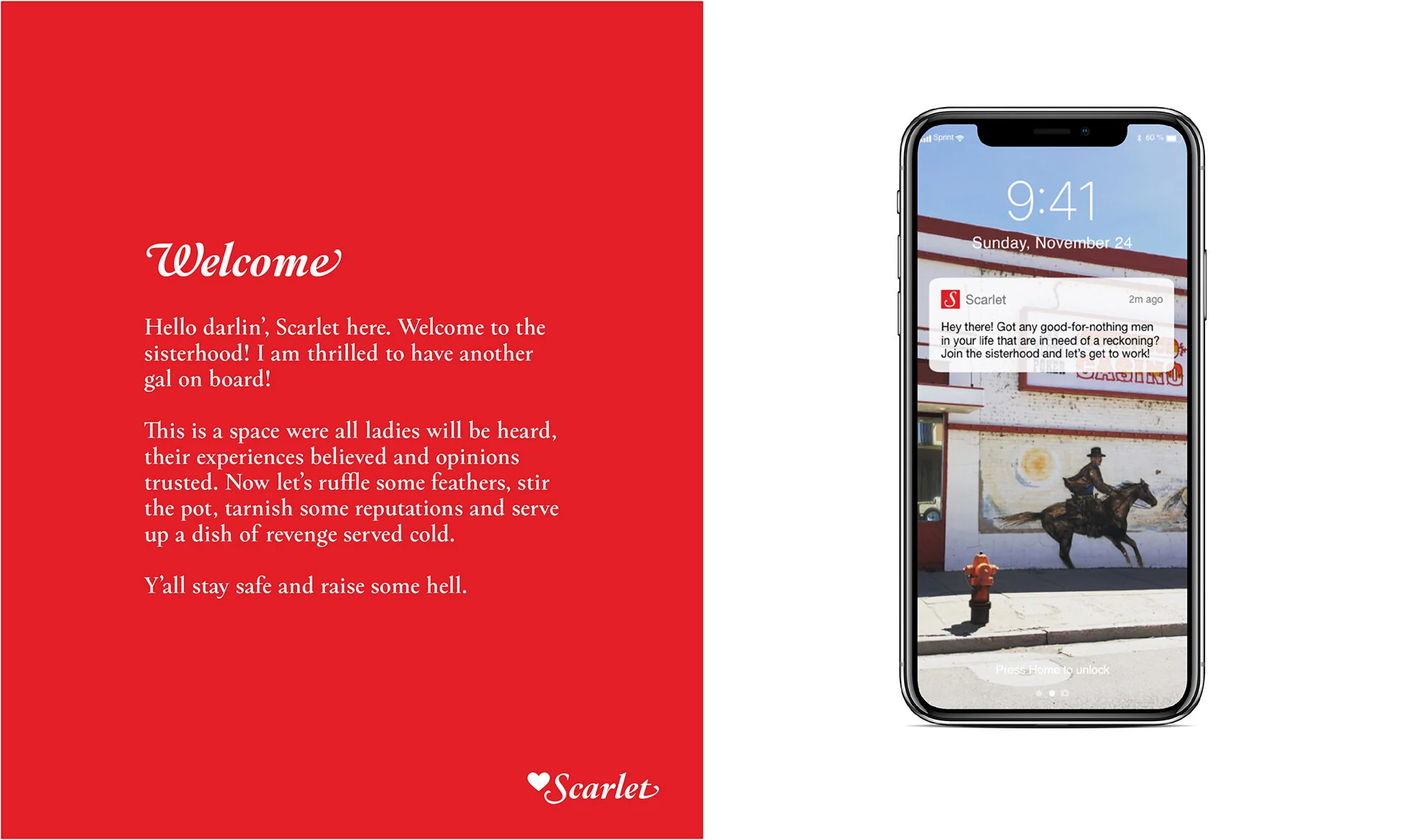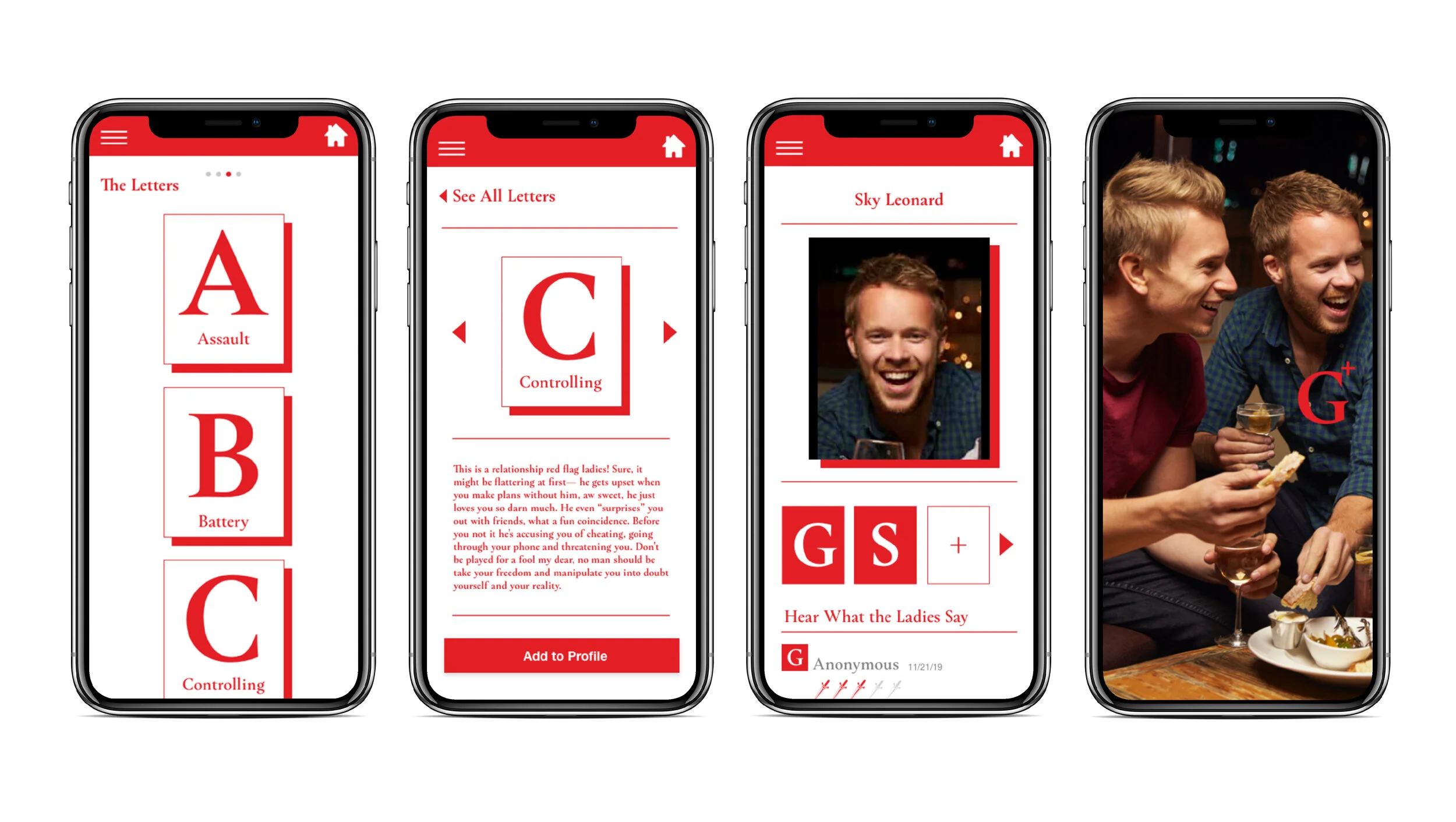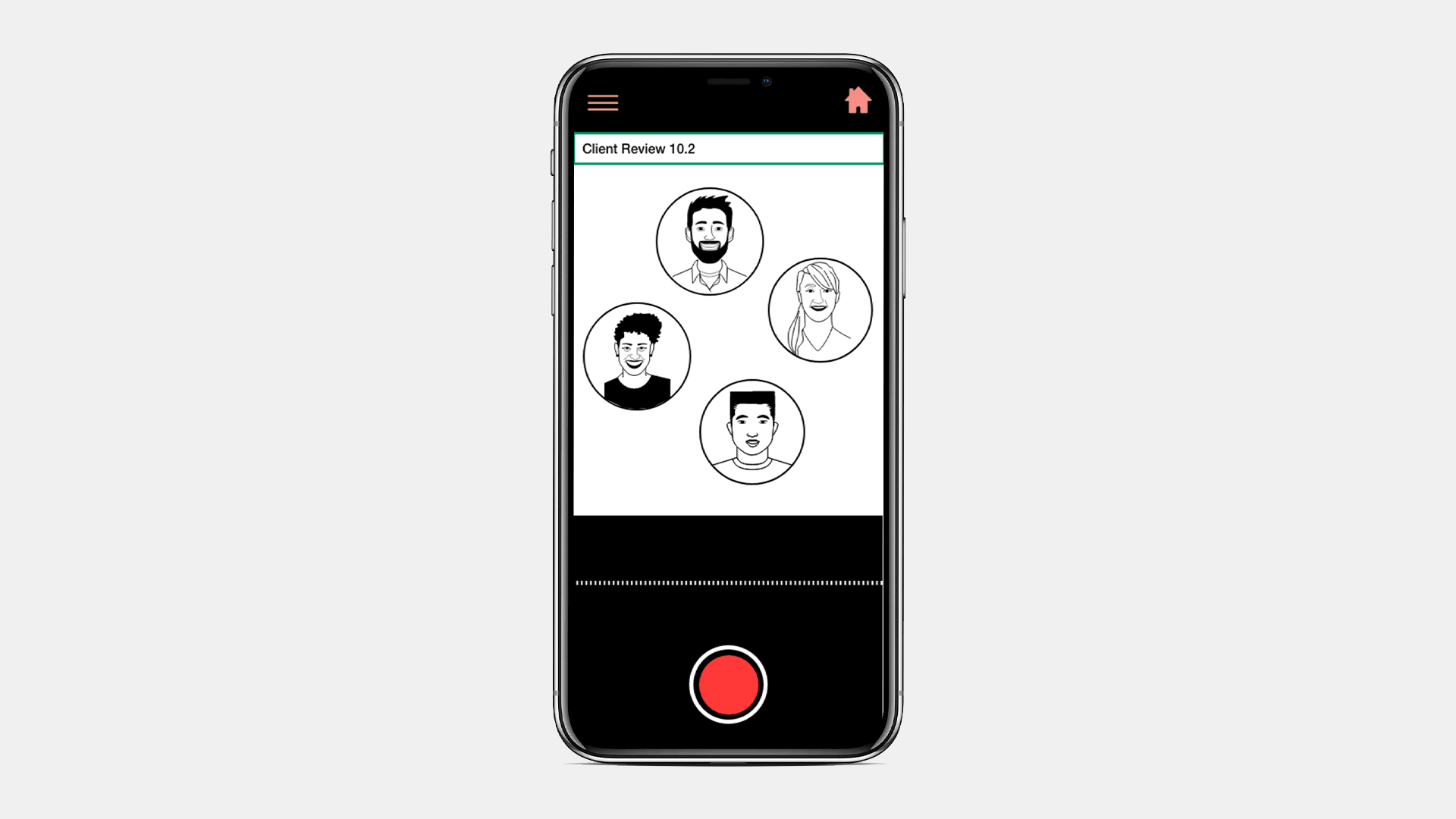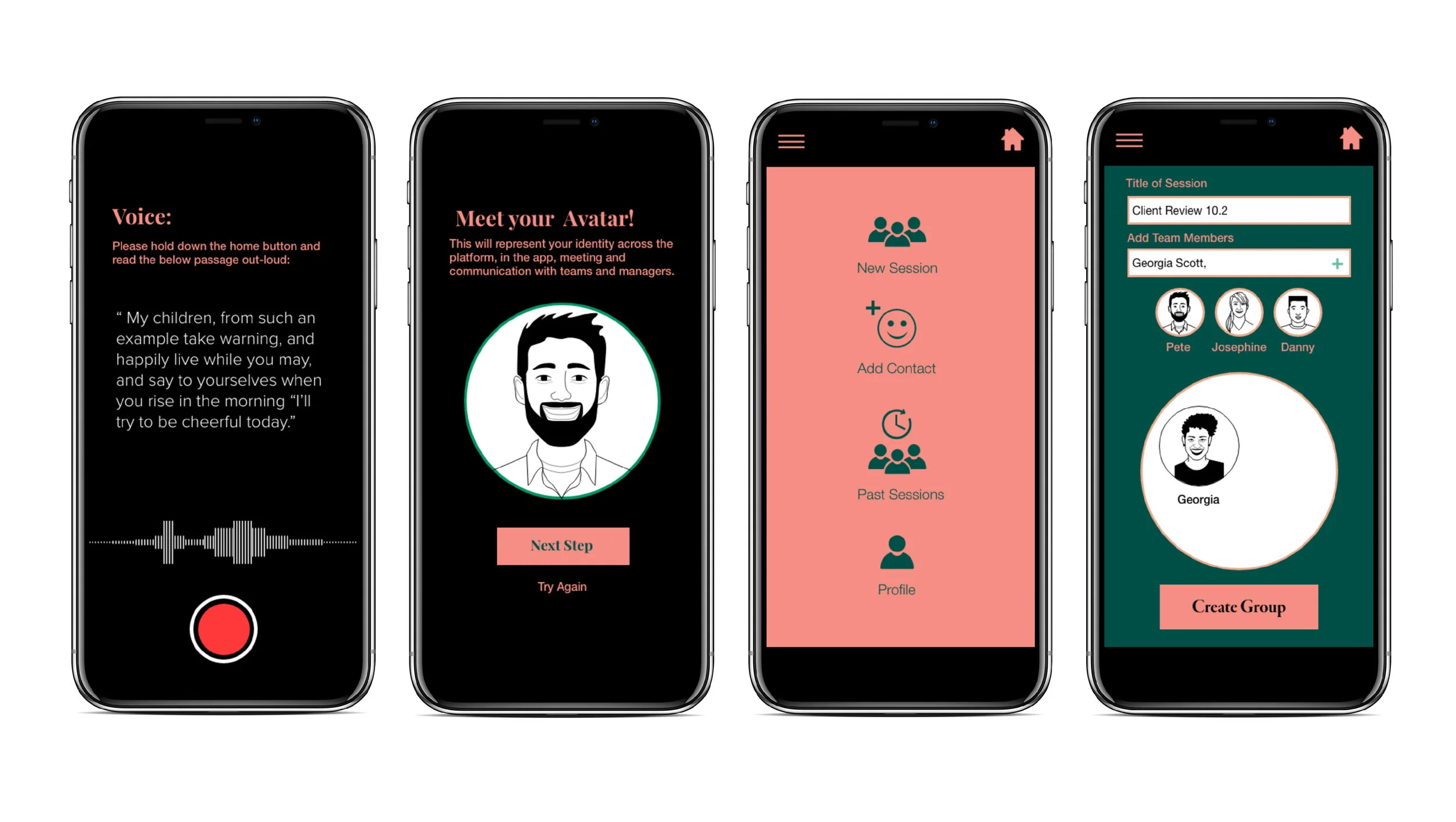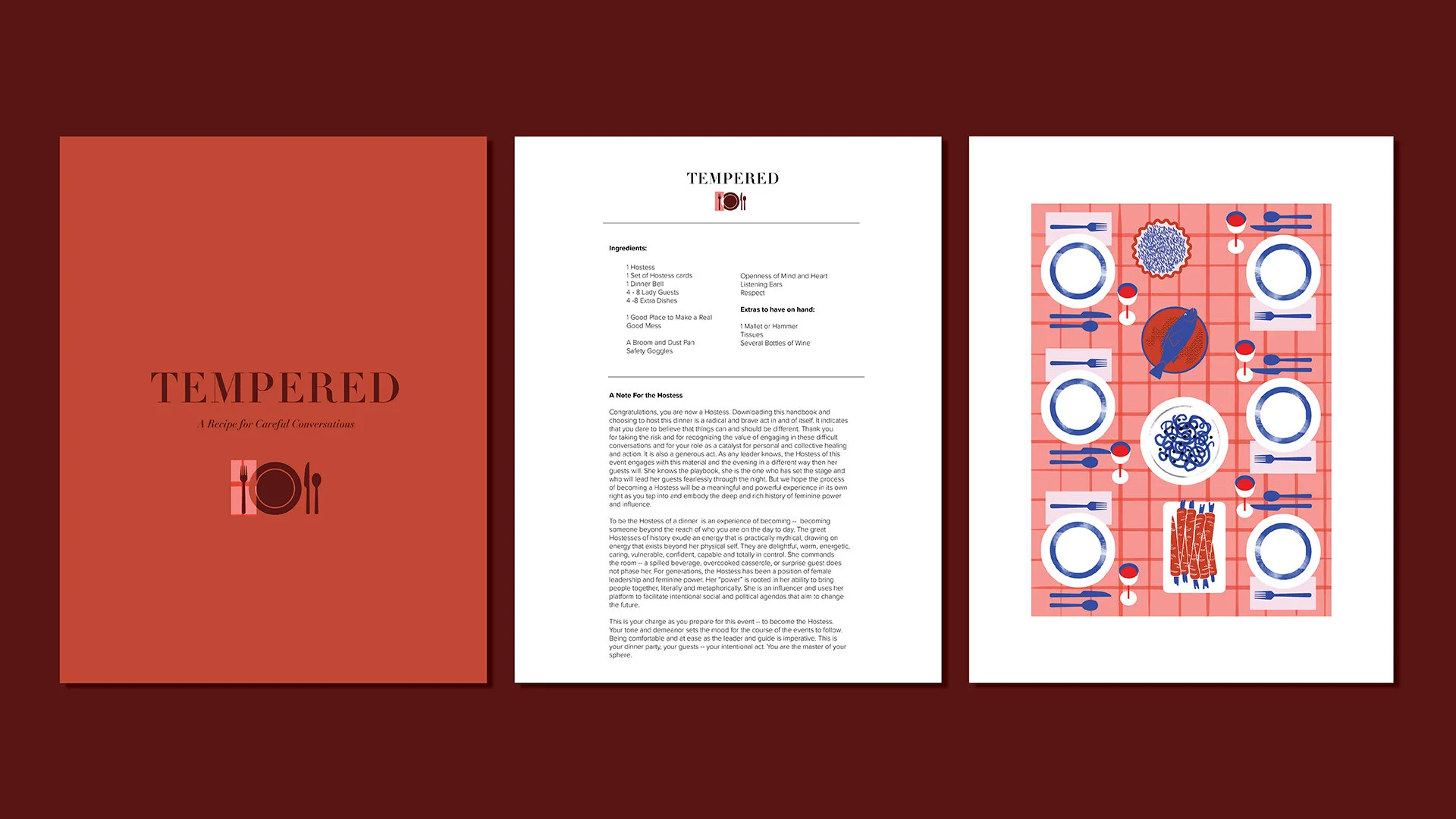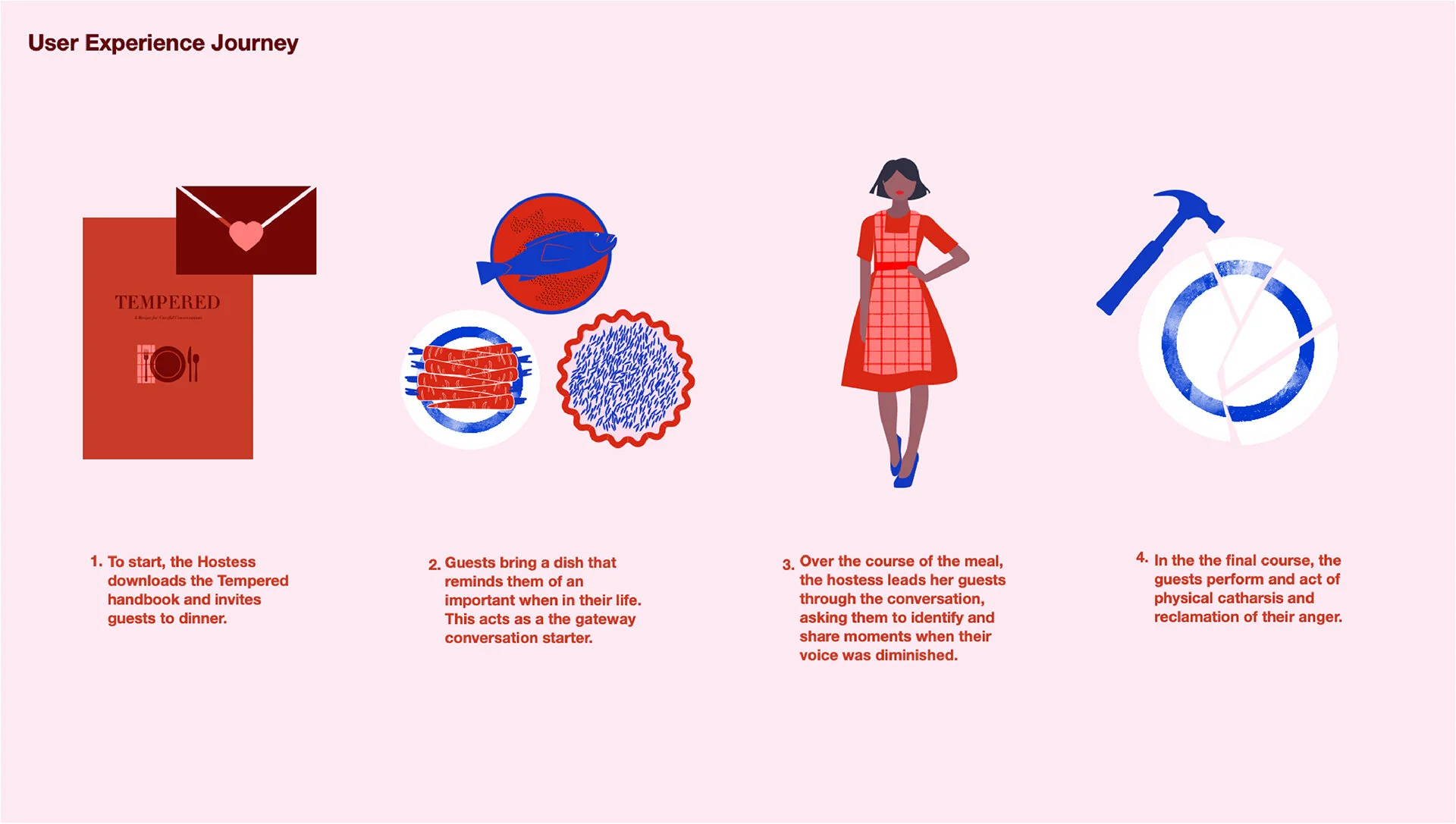Grandma’s Teeth: An Exploration of Feminine Voice, Power, and Reclamation
Stephanie Gamble’s thesis, Grandma’s Teeth: An Exploration of Feminine Voice, Power and Reclamation, is an in-depth examination of the physical, verbal, and emotional enforcement mechanisms of misogyny. Drawing from her own grandmother’s experience with the violence of misogyny, Stephanie designed a provocative body of work that interrogates and makes tangible how the enforcement mechanisms of misogyny are used to control and silence women. This thesis work proposes solutions that invert current power dynamics and challenge cultural values as a way to incite dialogue, ignite anger and impress upon men the substantial toll these experiences have on the daily lives of women.
Ŏb’jĕkt
Ŏb’jĕkt is a work of critical design exploring the physical enforcement of current gender power dynamics. As an earlier piece in Stephanie’s thesis exploration, Ŏb’jĕkt began as an examination of whether women could conceivably achieve true freedom of voice given the physical and often deadly retribution they encounter for challenging patriarchal norms and gender expectations. Ŏb’jĕkt grapples with this question and delves into themes of ownership, possession, and the objectification of women.
Ŏb’jĕkt is a speculative men’s luxury accessory brand that allows women to create physical objects, token trophies of power, from their own bodies. These tokens are gifted to men as a symbolic exchange for freedom from the physical threats women face when they reject or challenge men’s desires, expectations, or need for control. This provocation highlights the physical price already paid by women for challenging patriarchal norms and gender expectations but gives women ownership over how and when that price is paid.
Scarlet
Scarlet is a women-only, crowdsourced public shaming platform that uses facial recognition software, augmented reality (AR), and crowdsourcing to tag and identify men who have committed any number of “sins” against women. Inspired by its namesake, Nathaniel Hawthorne’s The Scarlet Letter, the work examines how design might make men’s crimes visible and explores how to imbue feminine voice with power, authority, and the prerogative to pass judgment and impose consequences.
With Scarlet, women can create profiles for men and assign them letters that identify their problematic behaviors for other users to see. Women are also invited to share their stories about the events that led to the “lettering.” Reaching beyond a screen and becoming a tool of protection, Scarlet’s AR function enables women to scan a crowd using their phone camera and see which men they should steer clear of during a day or night out. With Scarlet, there is no more “she was asking for it” or comments about what she was wearing; each woman’s story is believed and documented to give women the social enforcement power.
Upbraid
Upbraid, which means to find fault with or reproach severely, is a workplace service platform that corrects male colleagues’ verbal dominating behaviors. Upbraid arose from Stephanie’s research into how verbal silencing mechanisms of misogyny lead to diminished or ignored feminine voice in everyday settings, particularly the workplace.
Upbraid is a platform that companies introduce as part of a workplace culture initiative and is integrated into employee onboarding and performance reviews. Upbraid works by live-tracking the voices of various team members, listening for individual talk time, volume, number of interruptions, and occurrences of “hepeat.” If a male team member begins to dominate the conversation, Upbraid’s visual display changes in real-time and sends nudging text messages to the offender to remind him to let others speak. At the end of each session, Upbraid compiles and sends evaluations and suggestions. If a male team member does not improve over time, the platform ups the consequences by withdrawing money from his paycheck, which then gets redistributed to the female teammates he silenced. In effect, Upbraid no longer puts the onus on women in the workplace to” act like men” or to be more assertive, but focuses on and penalizes men who create the imbalanced dynamic in the first place.
Tempered
Tempered is an open-source recipe and dinner party experience that acts as a gateway into difficult conversations about the personal and generational impacts of misogyny. Tempered is designed to address the emotional enforcement mechanisms of misogyny, and how those psychological mechanisms lead women to internalize and perpetuate their own silencing and subjugation.
Throughout the meal, the hostess leads her guests through a series of conversation prompts, asking them to share a moment when their own identity and voice were diminished by misogyny and a moment of witnessing this happening to an important woman in their life. In a final act of catharsis, guests are invited to reclaim their anger about these experiences by smashing the dinner sets. The ultimate vision for this experience design is for women across the world to send the broken shards to be included in a living gallery project where a growing mountain of broken plates would visually and physically depict women’s cumulative rage.
“I wanted to create a space that allowed women to reconnect with their anger—as well as the anger they feel on behalf of others because I believe that feminine anger is a powerful force for social and political change.”
To learn more about Stephanie Gamble’s work, take a look at her projects in more detail at stephanie-gamble.com.

